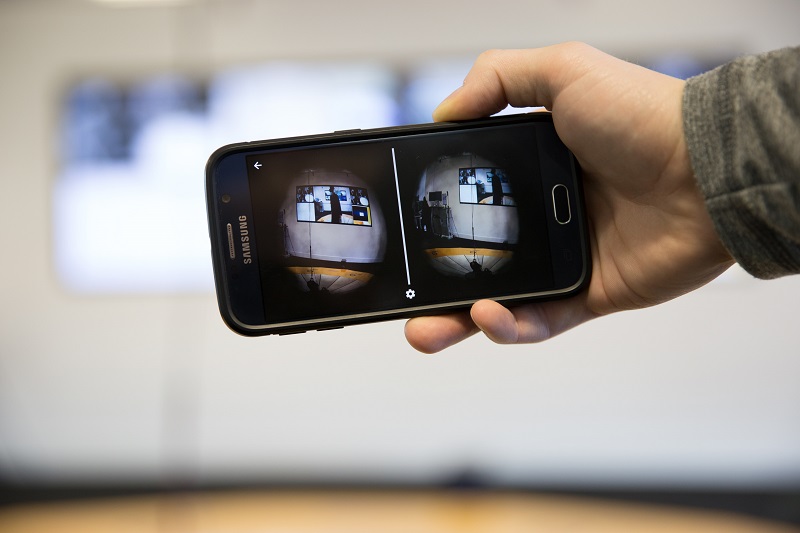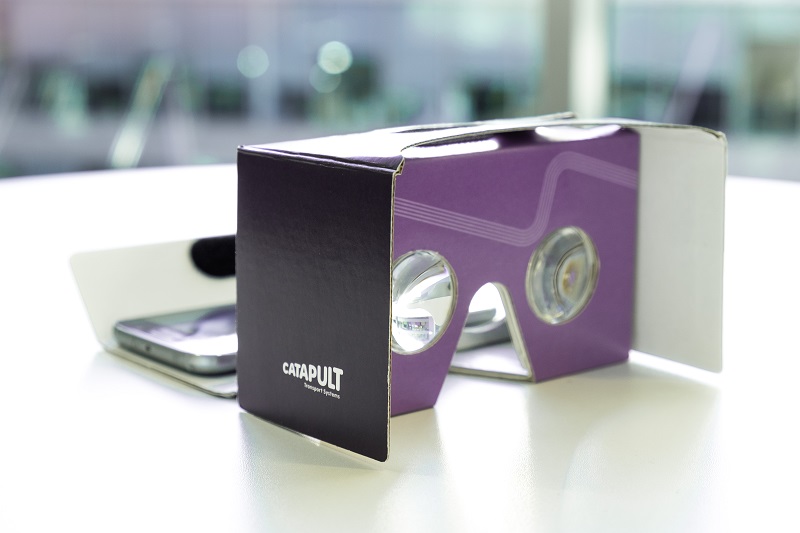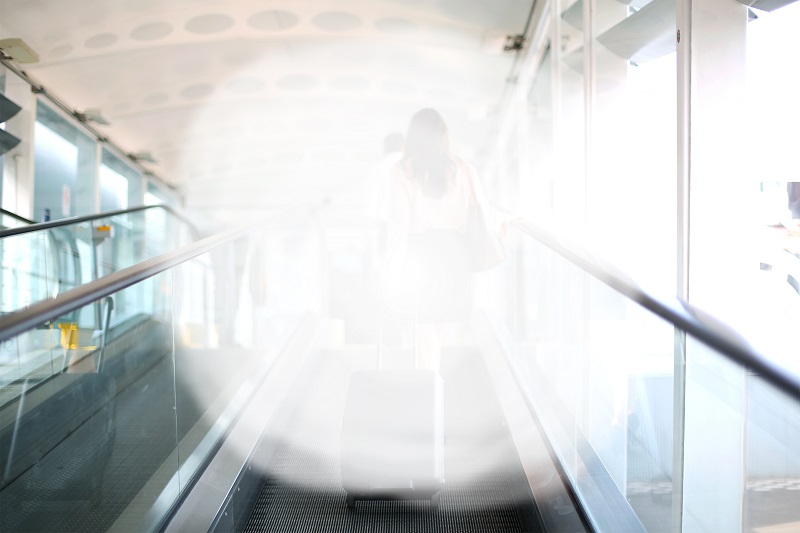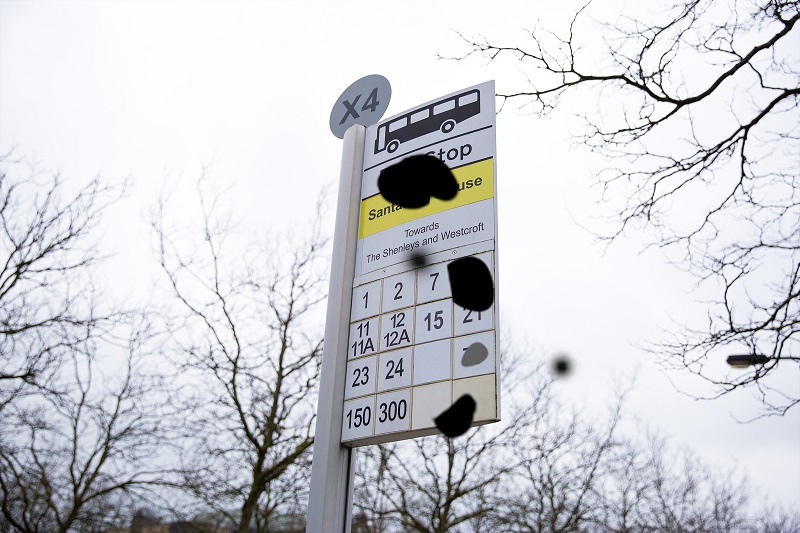Eyeware app
A virtual reality tool has been created to help designers improve buildings and public transport for people with sight loss.
Royal National Institute of Blind People (RNIB) statistics suggest that more than two million people in the UK are affected by sight loss, and by 2050, this will double to nearly four million. Findings from the RNIB’s 2015 ‘My Voice’ survey revealed that 40% of blind and partially-sighted people were not able to make all the journeys they wanted or needed to because of a lack of accessibility.
The smartphone app – Eyeware - launched in March 2017, allows users to experience the world around them from the viewpoint of people with a range of different sight loss conditions. Eyeware was developed in collaboration with RNIB and applies virtual filters over the surrounding environment which mimic sight loss conditions in real time.
Users can experience simulations of diabetic retinopathy, retinitis pigmentosa, cataracts and glaucoma.
The filters are being used at the Transport Systems Catapult to help design accessible transport systems at the organisation’s ‘Visualisation Laboratory’. This unique facility is designed to help industry develop virtual reality (VR) and augmented reality (AR) applications.
Project leader Martin Pett, Principle Technologist at the Transport Systems Catapult, said; “Urban environments like stations and new technology, can be confusing for anyone, but the difficulties this causes can be increased 10-fold when someone is blind or partially sighted. Our app allows users to put themselves in the shoes of people with sight loss conditions, so they can make better decisions about accessibility. Not only are we aiming to raise awareness of these disabilities, but our app will also have practical applications. For instance, we are helping architects design stations that are easily navigable for people with sight loss and looking at ways to make self-driving cars more accessible.”
The app is available to the public as an educational tool to help increase awareness of eye conditions. It is available for download from the Apple store and Google Play store. You can find more here.
Images and content courtesy of Catapult.
[edit] Related articles on Designing Buildings Wiki
- Accessibility in the built environment.
- Artificial intelligence and civil engineering.
- Augmented reality in construction.
- Caution Cinema.
- Gravity Sketch.
- Guide Dogs' Inclusivity campaign.
- Immersive Hybrid Reality IHR.
- People with disabilities.
- The Palimpsest.
- TruVision.
- Virtual construction model.
- Virtual reality and manufacturing.
- Virtual reality in construction.
Featured articles and news
UKCW London to tackle sector’s most pressing issues
AI and skills development, ecology and the environment, policy and planning and more.
Managing building safety risks
Across an existing residential portfolio; a client's perspective.
ECA support for Gate Safe’s Safe School Gates Campaign.
Core construction skills explained
Preparing for a career in construction.
Retrofitting for resilience with the Leicester Resilience Hub
Community-serving facilities, enhanced as support and essential services for climate-related disruptions.
Some of the articles relating to water, here to browse. Any missing?
Recognisable Gothic characters, designed to dramatically spout water away from buildings.
A case study and a warning to would-be developers
Creating four dwellings... after half a century of doing this job, why, oh why, is it so difficult?
Reform of the fire engineering profession
Fire Engineers Advisory Panel: Authoritative Statement, reactions and next steps.
Restoration and renewal of the Palace of Westminster
A complex project of cultural significance from full decant to EMI, opportunities and a potential a way forward.
Apprenticeships and the responsibility we share
Perspectives from the CIOB President as National Apprentice Week comes to a close.
The first line of defence against rain, wind and snow.
Building Safety recap January, 2026
What we missed at the end of last year, and at the start of this...
National Apprenticeship Week 2026, 9-15 Feb
Shining a light on the positive impacts for businesses, their apprentices and the wider economy alike.
Applications and benefits of acoustic flooring
From commercial to retail.
From solid to sprung and ribbed to raised.
Strengthening industry collaboration in Hong Kong
Hong Kong Institute of Construction and The Chartered Institute of Building sign Memorandum of Understanding.
A detailed description from the experts at Cornish Lime.



























